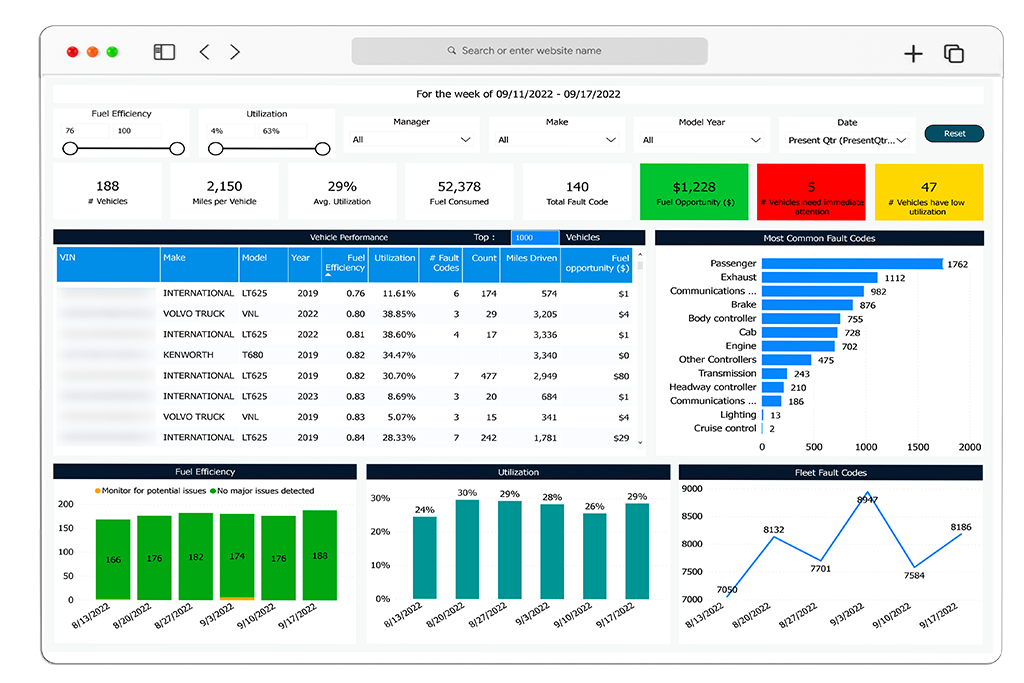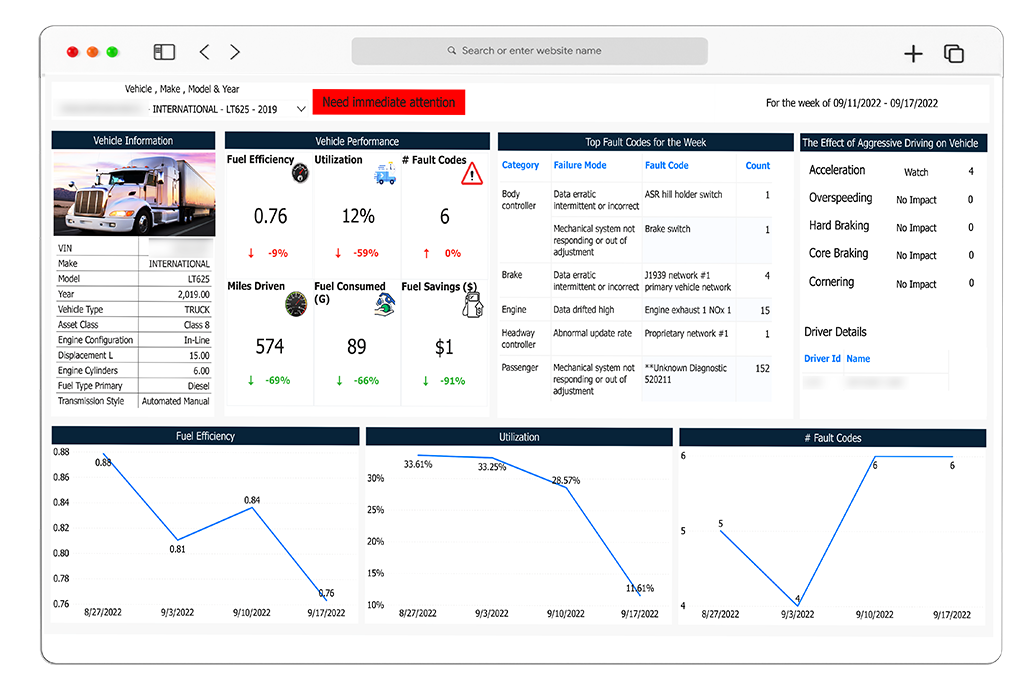Detect vehicle anomalies using
AI-powered insights and enhance your preventive maintenance program
Improve your Fleet Health and Longevity with
Predictive Maintenance
A cost-effective AI solution to optimize your maintenance program
Fleet Intellect identifies vehicle problems before they lead to catastrophic failures, improving vehicle uptime and lowering the total cost of ownership (TCO). With the insights from its advanced predictive analytics, proactively manage your fleet schedules and keep your business running smoothly.

Overall Fleet Health
- Get a glimpse into the overall utilization and health of your fleet.
- Gain greater visibility into your fleet and diagnose malfunctioning vehicles timely.

Fuel Efficiency
- Monitor the fuel efficiency of your fleet, a leading indicator of vehicle health.
- Learn the effects of aggressive driving on vehicles and implement recommended actions to fuel economy.

Anomaly Detection
- Identify failure risk with proven AI prediction methods.
- Classify and prioritize anomalies based on failure risk.
- Schedule repairs with advance, timely diagnostics.

Fault Codes
- Easily interpret the classified failure modes and understand the root cause with AI.
- Review current and historic fault codes to make informed decisions on maintenance schedules.

Asset Details and Health
- Get a weekly individual vehicle health check scorecard measuring its operational readiness.
- Measure and monitor each vehicle’s utilization level, fuel efficiency, the effect of aggressive driving, fault codes, and more.

Cloud-Based Solution
- Avoid high software costs with a flexible, scalable architecture and easy integration into your system.
- Access reports and insights from anywhere for quick decision-making.
Anomaly detection to prevent failures
- Identify failure risk through industry tested prediction models
- Classify anomalies and failures by severity
- Recommend actions that help accelerate diagnostic study


Vehicle health scorecard
- Review report on individual vehicles and their conditions
- Analyze data on system-specific fault codes, usage, and utilization
